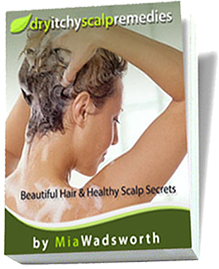Essential Oils To Help Regrow Hair
From The September 2000 Issue of Nutrition Science News
by Richard N. Podell, M.D.
So much importance is placed on appearance in this society that retaining one’s hair borders on obsession. Regardless of the causeE?be it genes, hormones, drugs or illnessE?hair loss can cause anxiety and stress. The number of national television ads for hair-growth drugs speaks volumes about the market for regrowth remedies. Thus, a treatment that offers moderate hair growth and no significant side effects could be a boon. Enter four promising essential oils.
So much importance is placed on appearance in this society that retaining one’s hair borders on obsession. Regardless of the causeE?be it genes, hormones, drugs or illnessE?hair loss can cause anxiety and stress. The number of national television ads for hair-growth drugs speaks volumes about the market for regrowth remedies. Thus, a treatment that offers moderate hair growth and no significant side effects could be a boon. Enter four promising essential oils.
External application of various herbal essences is believed to benefit those who suffer hair loss due to alopecia. Among these are cedarwood (Cedrus atlantica), lavender (Lavandula angustifolia), rosemary (Rosmarinus officinalis) and thyme (Thymus vulgaris), all of which have been used to treat alopecia for more than a century. However, no double-blind studies have been conducted to evaluate the efficacy of these herbs until now.
Hay and researchers recruited 84 people with diagnosed alopecia areata. During the seven-month trial, participants suspended use of topical or oral alopecia medications. Instead, half used a blend of cedarwood (2 drops, 94 mg), lavender (3 drops, 108 mg), rosemary (3 drops, 114 mg) and thyme (2 drops, 88 mg) in a carrier oil mix of jojoba (3 mL) and grapeseed (20 mL). The placebo group used just the carrier oils. Subjects were taught to rub the oil into the bare areas of their scalp for two minutes each evening and then to wrap a warm towel around their head to enhance absorption.
Professional photographs of each patients’ scalp were taken at baseline, three and seven months. Changes as seen in the photographs served as the primary outcome measure. Outcomes were also measured by mapping bald patches and measuring severity of alopecia with a four-point scale. Of the 84 patients who entered the trial, only 63 completed itE?35 from the active group and 28 from the control group.
Of those receiving active treatment, 44 percent (16 of 35 patients) significantly improved, while 15 percent (6 of 28 patients) using placebo improved. The essential oils had a statistically significant advantage (P = 0.008). The average area of hair regrowth with the essential oils was 104 square cm compared with nearly zero for those using placebo.1
One male patient with alopecia areata as well as severe male pattern hair loss saw improvement in both areas after using the essential oil blend.
These results suggest that one or more of the essential oils are biologically able to promote hair growth. While promising, confirming studies are needed before we can be sure. However, is a 44 percent response rate worth the effort? According to the authors, this is about the same response rate dermatologists expect with standard medical therapies. To the herbs’ benefit, however, they are less expensive, require fewer doctor visits and have a low risk of side effects.
Future research must explore which of the four herbs had the most effect or if they work in tandem. Also open for exploration is whether increasing the concentration of the most active constituents would increase response rates. Dose is also worth researching. Perhaps twice daily treatment would be more effective than once daily.
While this type of research on herbal remedies is encouraging, only one of five dermatologists I unofficially surveyed could remember seeing this study, although all five read the American Medical Association-sponsored journal that was open-minded enough to publish it.
Richard N. Podell, M.D., M.P.H., is director of the Podell Medical Center in New Providence, N.J.
Reference
1. Hay I, et al. Randomized trial of aromatherapyE?successful treatment for alopecia areata. Arch Dermatol 1998;134:1349-52.

 Discreet shipping and 128-bit SECURITY on all orders
Discreet shipping and 128-bit SECURITY on all orders